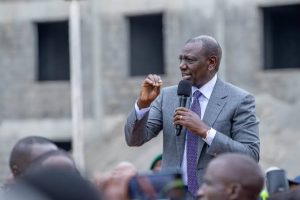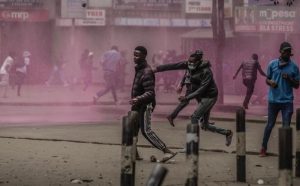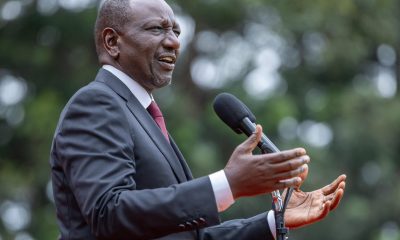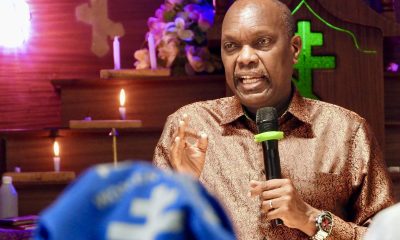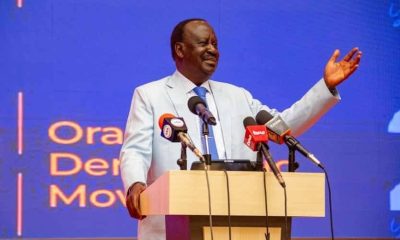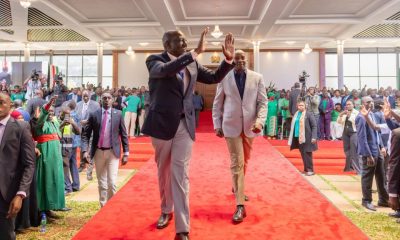Politics
Shoot to Kill: MP Koech Overrides Ruto’s Directive to Shoot Legs of Violent Protesters
While Ruto had instructed police to shoot violent protesters in the legs to incapacitate them before taking them to hospital and subsequently to court, Koech dismissed this as insufficient.
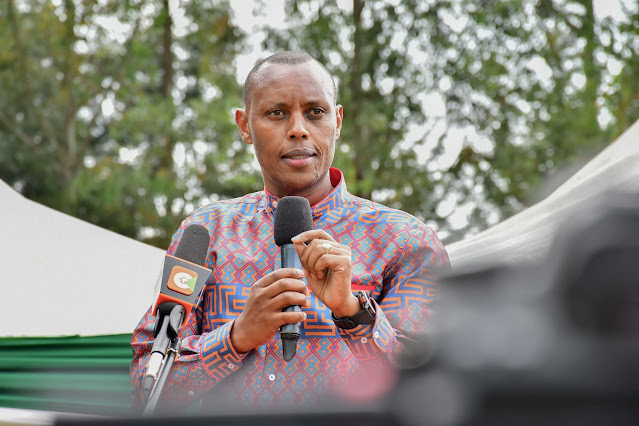
Belgut lawmaker calls for lethal force against protesters targeting government installations, contradicting President’s measured approach
NAIROBI – Belgut Member of Parliament Nelson Koech has sparked a fresh controversy by calling for police to be given explicit authority to shoot and kill violent protesters, directly contradicting President William Ruto’s Wednesday directive that officers should only shoot protesters in the legs to incapacitate them.
Speaking at a public event on Thursday, July 10, 2025, Koech escalated the government’s hardline stance against ongoing anti-government demonstrations, arguing that the President’s “shoot-in-the-leg” order does not go far enough to protect state institutions and public safety.
The Defence Committee chairperson’s call for lethal force represents a significant departure from President Ruto’s measured approach announced just a day earlier.
While Ruto had instructed police to shoot violent protesters in the legs to incapacitate them before taking them to hospital and subsequently to court, Koech dismissed this as insufficient.
“You cannot have someone coming after your life, and you do not want to shoot and kill. You cannot have someone who is going to endanger you and your family. And you are telling me you cannot shoot and kill,” Koech declared, defending the use of deadly force against what he termed “criminal elements hiding behind the guise of protest.”
Koech grounded his position in existing legal frameworks, arguing that both the Constitution and the Police Act already empower law enforcement to use firearms when their lives are threatened.
He maintained that the current wave of violence demands a firmer response than the President’s directive allows.
“The police have the power to use their arms when they have evaluated the risk of their lives are in danger,” the MP noted.
“These people cannot be terrorising others. Anyone who has to go to a protected area like the State House is not an ordinary person. That is a criminal, that is an armed person that must be dealt with using equal force, and the only force that applies to such people is to shoot and kill.”
Terrorism allegations
In perhaps his most inflammatory remarks, Koech likened protesters who target government installations to terrorists, suggesting they should face terrorism charges.
This represents a significant escalation in the government’s characterization of the demonstrations that have rocked Kenya since June.
“I can tell you they are terrorists and they are going to be charged as either facilitating terrorism or being terrorists themselves,” Koech stated, dismissing concerns about potential abuse of police powers.
The MP’s comments come against the backdrop of escalating violence during recent protests.
On Monday, July 7, 2025, at least 31 people were killed during nationwide anti-government demonstrations marking the 35th anniversary of Kenya’s pro-democracy uprising.
The protests, which began as calls for economic reforms, have evolved into demands for President Ruto’s resignation.
The violence has prompted international concern, with the United Nations and various human rights organizations accusing Kenyan police of excessive force.
This scrutiny appears to have influenced President Ruto’s decision to issue the more measured “shoot-in-the-leg” directive rather than authorizing lethal force.
Koech’s stance puts him at odds not only with the President but also with growing criticism from other political leaders.
Former Deputy President Rigathi Gachagua has already criticized Ruto’s “shoot-in-the-leg” order as lacking “feelings and humanity,” while EALA MP David Ole Sankok has urged the President to reconsider the directive entirely.
The public response to Ruto’s Wednesday announcement has been largely negative, with Kenyans turning the directive into viral memes featuring images of people on crutches.
The satirical response highlights the public’s rejection of what many see as disproportionate state violence against protesters.
Proportionality debate
The contradiction between Koech’s “shoot-to-kill” advocacy and Ruto’s “shoot-in-the-leg” order raises fundamental questions about the proportionality of force in crowd control.
While Koech argues that constitutional protections justify lethal force, critics contend that such measures would further inflame public anger and potentially trigger more violence.
The debate reflects broader tensions within the ruling United Democratic Alliance (UDA) party about how to respond to the sustained protests while maintaining legitimacy and avoiding further casualties.
Koech’s comments are likely to intensify international pressure on Kenya’s government.
The MP, who serves as chairperson of the National Assembly’s Committee on Defence, Intelligence and Foreign Relations, has previously rejected external criticism of Kenya’s handling of protests, telling diplomatic missions not to interfere in the country’s internal affairs.
However, calls for lethal force against protesters may prompt stronger international condemnation and potentially impact Kenya’s relationships with development partners and the international community.
As Kenya grapples with its worst civil unrest in years, the contradiction between senior government officials on the use of force highlights the lack of a unified strategy for addressing the crisis.
While President Ruto appears to be seeking a balance between maintaining order and avoiding further casualties, lawmakers like Koech are pushing for more aggressive measures.
The outcome of this internal debate within the government will likely determine not only the immediate response to ongoing protests but also the long-term trajectory of Kenya’s democracy and respect for human rights.
The international community, civil society organizations, and ordinary Kenyans will be watching closely to see whether the government chooses the path of de-escalation or further entrenchment in its hardline approach to dissent.
Kenya Insights allows guest blogging, if you want to be published on Kenya’s most authoritative and accurate blog, have an expose, news TIPS, story angles, human interest stories, drop us an email on [email protected] or via Telegram
-

 Grapevine2 weeks ago
Grapevine2 weeks agoRussian Man’s Secret Sex Recordings Ignite Fury as Questions Mount Over Consent and Easy Pick-Ups in Nairobi
-

 News6 days ago
News6 days agoTHE FIRM IN THE DOCK: How Kaplan and Stratton Became the Most Scrutinised Law Firm in Kenya
-

 Investigations1 week ago
Investigations1 week agoMulti-Million Dollar Fraud: Three Kenyans Face US Extradition in Massive Cybercrime Conspiracy
-

 Economy1 week ago
Economy1 week agoIran Demands Arrest, Prosecution Of Kenya’s Cup of Joe Director Director Over Sh2.6 Billion Tea Fraud
-

 Business1 week ago
Business1 week agoA Farm in Kenya’s Rift Valley Ignites a National Reckoning With Israeli Investment
-

 Africa1 week ago
Africa1 week agoFBI Investigates Congresswoman Ilhan Omar’s Husband’s Sh3.8 Billion Businesses in Kenya, Somalia and Dubai
-

 Grapevine3 days ago
Grapevine3 days agoA UN Director Based in Nairobi Was Deep in an Intimate Friendship With Epstein — He Even Sent Her a Sex Toy
-

 Politics2 weeks ago
Politics2 weeks agoSifuna, Babu Owino Are Uhuru’s Project, Orengo Is Opportunist, Inconsequential in Kenyan Politics, Miguna Says

